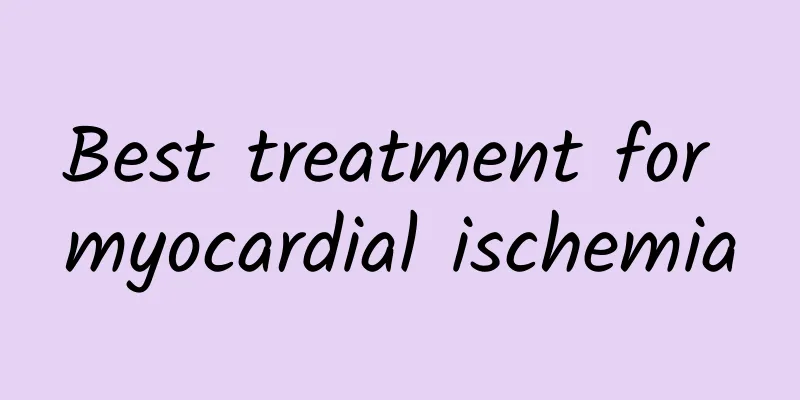Why does my baby always drool? Pay attention to these things!

|
In daily life, many babies drool, especially in infancy and childhood. They drool a lot and very frequently. Many adults are accustomed to it, not knowing that this may be a hidden danger of baby disease. Although most babies drool, there are also babies who do not have the habit of drooling. You need to carefully observe the baby's words and deeds. 1. The time when babies aged 0-1 drool (1) Within 0-3 months: generally no drooling During the neonatal period, the baby's salivary glands are not yet developed and secrete less saliva, so no excess saliva flows out of the baby's mouth. In addition, newborn babies only eat breast milk, milk powder or liquid food, these foods do not stimulate the salivary glands much, so the secretion of the salivary glands is very small. (2) 4-6 months: Saliva begins to increase The addition of complementary food has begun! The baby's diet gradually begins to be supplemented with foods containing nutrients such as starch. After the salivary glands are stimulated by these foods, saliva secretion increases significantly. At this time, the baby's mouth is small and shallow, and the swallowing reflex function is not yet perfect. He cannot use swallowing movements to regulate saliva, so as long as there is too much saliva, it will flow out of the mouth. In addition, many babies like to suck their fingers, pacifiers, etc., which also stimulates the secretion of salivary glands and increases saliva. (3) After July: Saliva is more abundant Babies usually start to get their first teeth around 7 months old. When the deciduous teeth erupt, the small teeth push outward from the gums, causing mild swelling and discomfort in the gum tissue, thereby stimulating the nerves on the gums and causing a reflex increase in the secretion of the salivary glands. This is why when experienced elders see babies drooling, they not only don’t frown but also show a look of joy. It is a happy thing for a baby to grow teeth! Studies have shown that 6 months to 1 year old is the golden period for babies to practice chewing. Children with normal chewing function development have strong swallowing ability and are less likely to drool. If a child is still drooling after he is over one year old, it means that his chewing function has not developed well. 2. Babies often drool and may suffer from 4 diseases 1. Oral ulcers Symptoms of oral ulcers include frequent drooling. If drooling is accompanied by blisters at the corners of the mouth, your baby may have oral ulcers or stomatitis. Because oral ulcers are painful, babies may refuse to eat or have difficulty swallowing. Parents can prepare some softer liquid food for their babies. 2. Tonsillitis Pay attention to whether it is a symptom of tonsillitis and pay attention to necessary examinations. If drooling is accompanied by fever and runny nose, it may be pharyngitis or tonsillitis. Tonsillitis is often accompanied by redness, swelling and discomfort in the throat, which can make it difficult for the baby to swallow. At this time, it is recommended that parents let their babies drink more water and go to the hospital for examination if necessary. 3. Chickenpox or foot-and-mouth disease Pay attention to supplementing some nutrition, and let them drink more milk and other substances. If drooling is accompanied by ulcers at the corners of the mouth, the baby may have chickenpox or hand, foot and mouth disease. After a baby is infected with chickenpox or hand, foot and mouth disease, he or she may develop ulcers in the mouth or on the tongue. Because the ulcers are very painful, the baby will have difficulty swallowing. If the baby refuses to eat, you can let the baby drink more milk and rice porridge to supplement nutrition. 4. Brain problems Is there some problem with the brain? If so, it will cause illness. When the baby drools and also has abnormal behavior, such as coma, parents need to pay special attention. The baby may suffer from a neurological disease, such as mental retardation, facial nerve paralysis, sequelae of meningitis, etc. |
<<: Can tendonitis heal on its own? How to treat
Recommend
Why do I feel constipated when my due date comes?
If you experience constipation when it is time fo...
High triglycerides
High triglycerides actually refer to the relative...
Symptoms of high alanine aminotransferase
Many institutions often hold free health educatio...
Nine points you must know about acupuncture for weight loss
Many people don’t know much about acupuncture for...
Acne on the back
What should you do if you get acne on your back? ...
How to replenish the body of pregnant women
Pregnant women are relatively weak due to pregnan...
What to eat to cure cough and phlegm
With the rapid development of modernization, peop...
Increased intracranial pressure
Increased intracranial pressure is a relatively c...
Difference Between Autosomes and Sex Chromosomes
The human body is composed of 46 chromosomes, whi...
What are the treatments for dry eyes?
Our eyes are our only way to see the outside worl...
The effect of drinking mistletoe soaked in water
In daily life, if there are symptoms such as defi...
The dangers of moderate anemia in children
Anemia is a very serious disease. The chance of o...
What are the dangers of chewing gum for children?
Chewing gum has always been a very popular and del...
How to treat otitis media
Ears are very important for normal people because...
Is it harmful to not have sex for a long time?
Many people are very shy when talking about sex, ...









